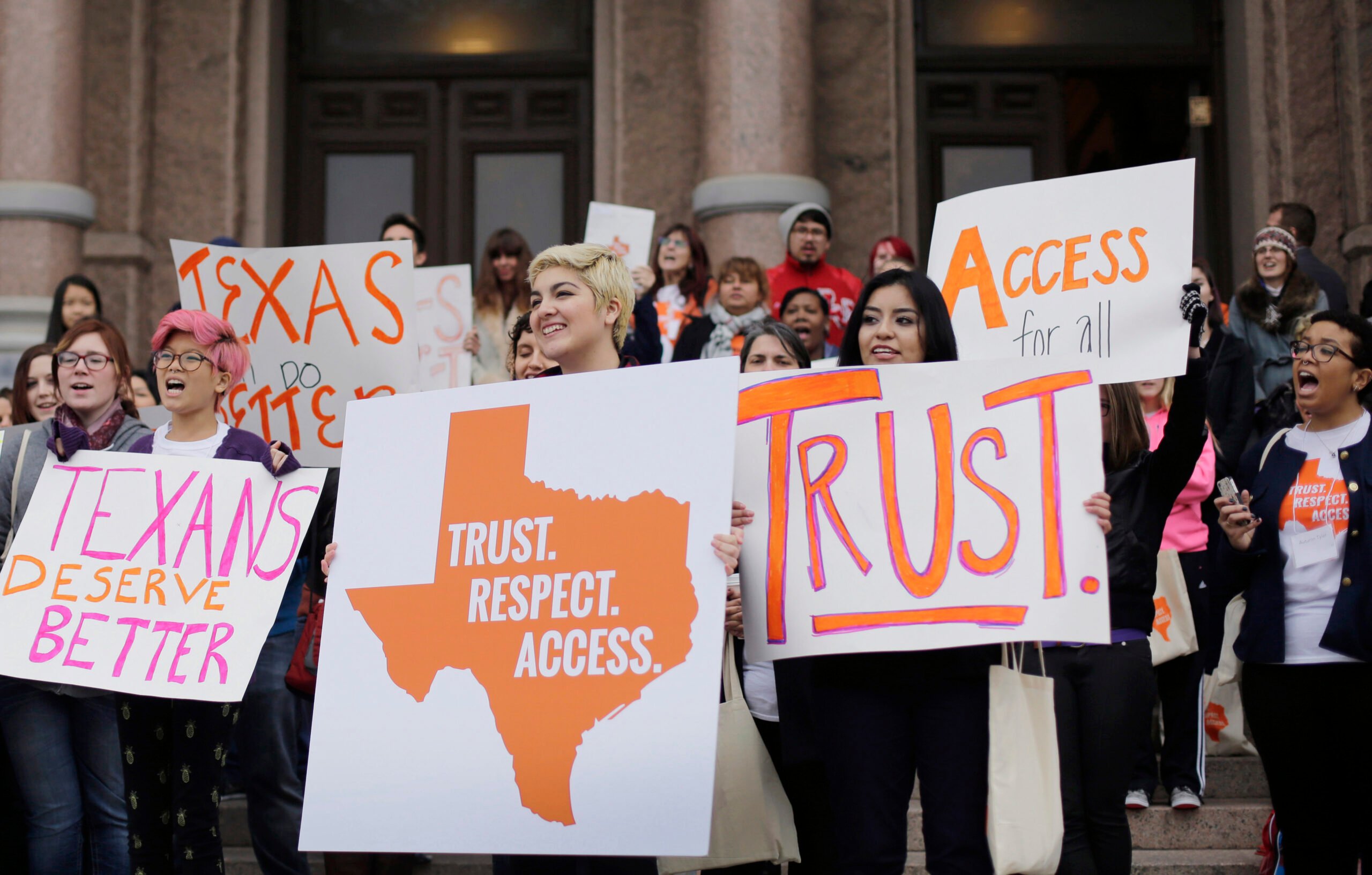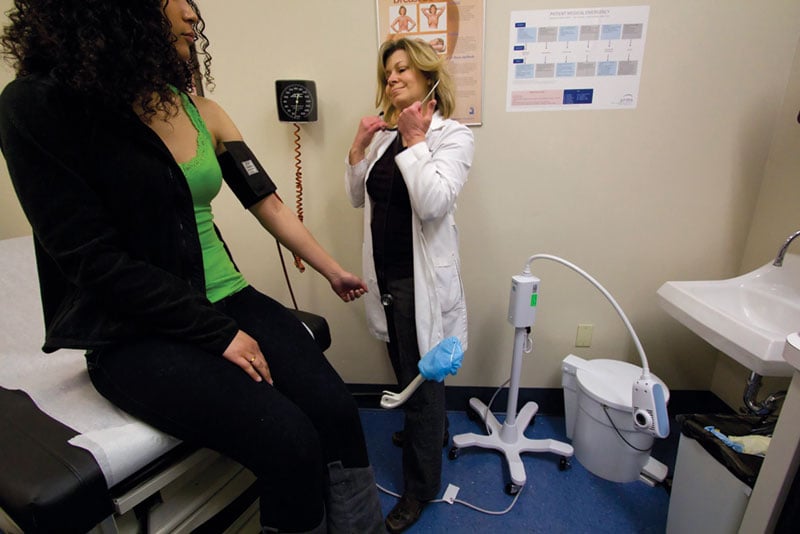
Budget Rider Nearly Doubles Funding for Alternatives to Abortion Program

Above: Gov. Rick Perry attends the ribbon cutting ceremony for a new crisis pregnancy center in Houston in 2012.
The House Appropriations Committee approved a budget rider Thursday that would add an additional $4 million per year to the Alternatives to Abortion program, which largely funds crisis pregnancy centers.
The House base budget, originally introduced in mid-January, includes about $5.1 million per year, a $1 million increase from the previous budget cycle, to the program. The rider, by state Rep. Greg Bonnen (R-Friendswood), increases state funding to more than $9 million per year.
The nonprofit Texas Pregnancy Care Network contracts with the state to distribute funding through the Alternatives to Abortion program to 61 subcontractors, including crisis pregnancy resource centers, maternity homes and adoption agencies. The network purports to “help women in crisis pregnancies via free and compassionate, practical and life-affirming services,” but many facilities do not provide medical care, are virtually unregulated by the state and have been found by various investigations to offer inaccurate information designed to dissuade women from having an abortion.
Bonnen’s rider is described as “increasing funds to pregnancy centers and early childhood care.”
Bonnen says his chief focus is early childhood care.
“One of the main focuses of this is really parenting services,” he said before the hearing. “So, moms that have a newborn that would like to have some guidance in terms of how to care for this child, and how to care for themselves as they’re caring for this child.”
During the Thursday hearing, state Rep. Donna Howard (D-Austin) and state Rep. Sylvester Turner (D-Houston) raised concerns about the sizable funding increase, questioning whether there is enough oversight of the Texas Pregnancy Care Network. Right now, the network reports “deliverables and milestones” to the Health and Human Services Commission on a monthly basis, but beyond that, it’s hard to know how much of the state funds go toward services compared to administrative costs.
“I still have concerns about bang for the buck, so to speak,” Howard said.
State Rep. Four Price (R-Amarillo) said that 41 percent of the Alternatives to Abortion funds go to crisis pregnancy centers, 35 percent to maternity homes and 25 percent to adoption agencies. He also said that increased funding will lead to an increase in subcontractors with the Texas Pregnancy Care Network. Most of the crisis pregnancy centers and other facilities are located in Central and North Texas, he said.
Originally, Bonnen’s rider called for an additional $9.7 million over two years, but was later reduced to $8 million. Another proposed rider, by state Rep. Bryan Hughes (R-Mineola), would have increased the funding by nearly $15 million over the next two years, but it was not approved by a budget subcommittee.
While legislators have cut funding for family planning and cancer screenings over the last few sessions, they’ve also pumped more money into crisis pregnancy centers.
From its inception in 2005 to 2012, the Alternatives to Abortion program received more than $26 million in state funding. A 2012 Texas Observer investigation found that crisis pregnancy centers deliver fewer services to women, while spending more per client than family planning providers.

Investigations by NARAL Pro-Choice Texas and multiple media outlets have raised questions about the Texas Pregnancy Care Network’s contract with the state and have found that crisis pregnancy centers use scientifically inaccurate information when talking to women, including telling clients that abortion is linked to breast cancer.
State Rep. Armando Walle (D-Houston) is member of the subcommittee that oversees the health and human services portion of the budget. He takes issue with Bonnen’s rider, raising concerns this week about the lax accountability standards set up for crisis pregnancy centers.
“I don’t think it’s a wise use of our resources,” he said. “With some of these centers there’s no accountability. Are only they gearing these young ladies to not have an abortion? Do they account for a young lady who might’ve been raped? Or a victim of incest? That’s where I come down on it.”


